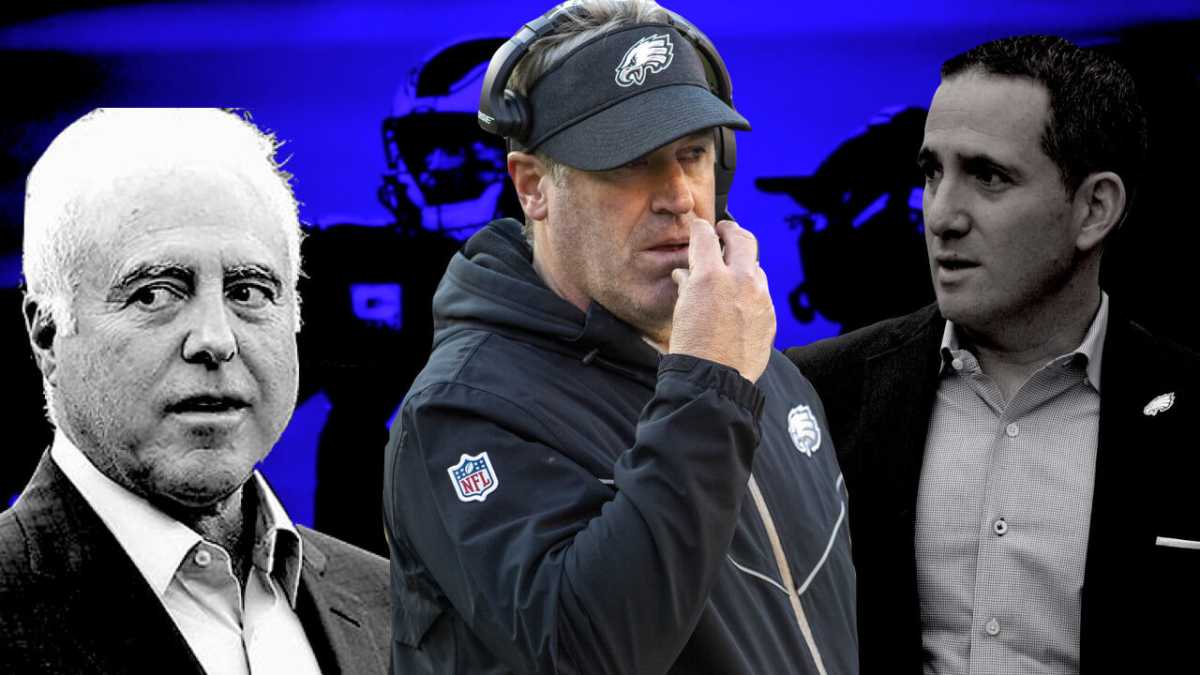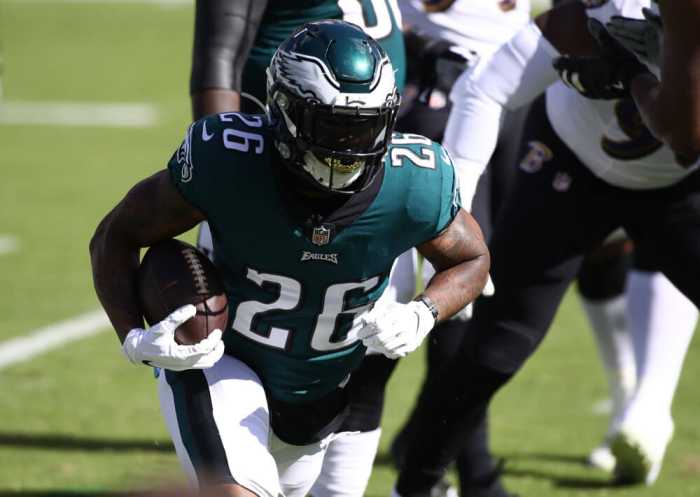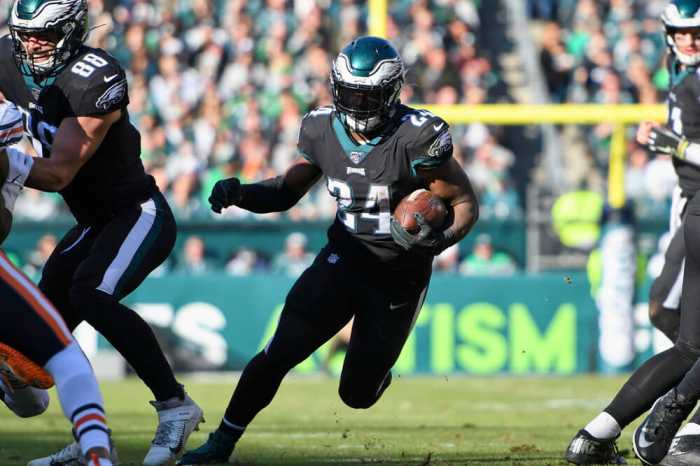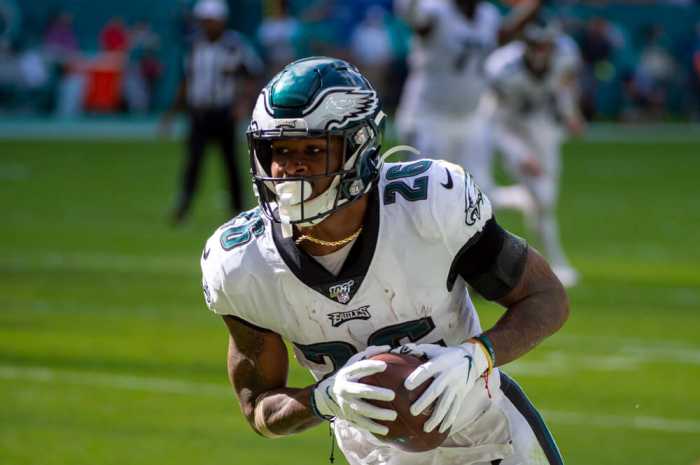Doug Pederson coached the Philadelphia Eagles to their first Super Bowl in franchise history following the 2017 NFL season. His fearless style endeared him to Philadelphia fans, but things went downhill quickly. His tenure as head coach ended just three seasons later.
Pederson spoke at length with Robert Mays on The Athletic Football Show about his experience as a head coach, creating offensive schemes, the in-season adjustments made by NFL teams, and his time with the Eagles.
Pederson on the construction of NFL Offenses
During the interview, Pederson described the evaluation process between the coaching staff and members of the front office immediately following an NFL season. He stated the goal of “understanding where you are as a football team. He described further evaluations that take place throughout the offseason months, especially as a play-caller.
I had to go back and evaluate myself, especially in critical situations, certain third down situations, certain fourth down situations, two-point conversions.
-Doug Pederson
Pederson developed a reputation as an aggressive play-caller in the best moments of his five-year tenure. When he coached the Eagles to a 4-11-1 record in 2020, however, his play-calling caused many to scratch their heads. At a certain point, his decision-making in these critical situations began to suggest a lack of interest in continuing with the Eagles. The fact that he pointed to the importance of these situations indicates how he got away from the things that made him successful before 2020.
Evolving the Offense with the Coaching Staff
Pederson mentioned his former assistants Frank Reich, John DeFilippo, and Press Taylor when asked about implementing new ideas into an NFL offense during a season. He talked about the need to “be creative, think out of the box” and how it “allows you to grow as a coach, allows you to grow as an offense.”
Pederson and his staff’s ability to evolve the offense late in the 2017 season and enable Nick Foles to step in for Carson Wentz and play the best football of his career was truly remarkable. The ability to withstand injuries and somehow find a way to grow became a hallmark of the Super Bowl champions.
The Eagles finished 9-7 in 2018 and again in 2019. These weren’t tremendous seasons for the organization as a whole coming off the victory in Super Bowl LII. However, Pederson again found ways to evolve gameplans based on circumstances that often hinder the success of NFL teams. The rosters of these two teams were far from perfect, and they suffered seemingly endless injuries in both seasons. The coaching adjustments made based on the minimal personnel available allowed the Eagles to reach the playoffs with hot streaks in the final month of each season.
Lurie and Roseman chose many of Pederson’s offensive assistants, which contributed to the disconnect between the coach and the front office. The emphasis on the importance of assistants during the interview reinforces the fact that Pederson’s inability to hire his own staff heavily contributed to his demise.
Pederson’s Leadership in Philadelphia
Pederson shed more light on his time as head coach of the Eagles towards the end of the interview. He unsurprisingly named the Philly Special as his favorite “well-known, documented play” borrowed from someone else.
When they hired him in 2016, Lurie and Roseman wanted Pederson to bring a level of emotional intelligence after the recently departed Chip Kelly failed to exemplify strong leadership qualities.
Pederson emphasized leadership and building relationships in a way that aligned with the organization’s vision. He discussed the need to “show your players that you care about them” and shared that this attitude extended to players’ families. He even likened a coach to a “father figure” for the players. This attitude drove the bond of the 2017 team.
Biggest Takeaways from Pederson’s Tenure
The most telling part of the interview came at the very end.
“You have to hit the reset button, man. When that new league year starts over again in March, you’ve got to hit the reset button and get off your friggin high horse and go back to work just like it’s day one and you’re the new head coach of the Philadelphia Eagles or whoever it is and you’ve got to go back to work.”
He added that Bill Belichick of the New England Patriots and Bill Walsh, formerly of the San Francisco 49ers, should be given tremendous credit for that ability to reset and continue success.
“I think so many players and coaches are kind of guilty of hanging onto that (success) just a little bit too long and not being able to hit the reset button and move forward.”
The comments clearly referred to the quick fall from the top the Eagles suffered after winning the Super Bowl. They were simply never able to hit that reset or reestablish a winning identity.
The disconnect between Pederson and the organization displayed itself throughout the 2020 season. The decision to move on from him was also incredibly disorganized concerning the timeline of events surrounding Wentz being traded to the Indianapolis Colts. Pederson was a successful NFL head coach overall. He certainly deserves a ton of credit for his head coaching job despite the weaknesses he showed, but Lurie and Roseman ultimately chose the option for a fresh start.
They hired Nick Sirianni to replace Pederson. Both coaches, along with future Hall of Fame coach Andy Reid, began with the Eagles as lesser-known offseason candidates with offensive backgrounds and prioritization of leadership and other intangible strengths.
At this point in the 2021 season, Sirianni has shown minimal schematic creativity or ability to think outside the box. It is entirely fair to criticize him, but it should be noted that Pederson took similarly heavy criticism during his first season as an NFL head coach in 2016. The Eagles are unlikely to move on from Sirianni in fewer than two seasons, so room for growth still exists in the post-Pederson era.
Photo Credits: Icon Sportswire





























